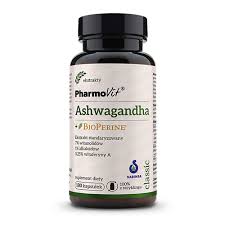
Parkinson’s disease is a progressive neurodegenerative disorder that affects millions of people worldwide. Characterized by tremors, stiffness, and difficulty with balance and coordination, it significantly impacts the quality of life. While conventional treatments focus on managing symptoms, there is growing interest in natural remedies like Ashwagandha for Parkison’s disease their potential therapeutic benefits.
Understanding Parkinson’s Disease
Parkinson’s disease is caused by the degeneration of dopamine-producing neurons in the brain. Dopamine is a neurotransmitter that plays a crucial role in regulating movement and coordination. As the disease progresses, the loss of dopamine leads to the characteristic motor symptoms of Parkinson’s.
The Role of Ashwagandha
Ashwagandha, often referred to as “Indian Ginseng,” is a revered herb in Ayurvedic medicine. It is known for its adaptogenic properties, meaning it helps the body manage stress and maintain balance. Recent studies have explored its potential in treating neurodegenerative disorders like Parkinson’s disease.
Scientific Evidence
Research has shown that Ashwagandha contains active compounds like withaferin A and withanone, which exhibit strong antioxidant properties. These antioxidants help combat oxidative stress, a key factor in the progression of Parkinson’s disease. In animal studies, Ashwagandha has demonstrated neuroprotective effects, particularly in preserving dopaminergic neurons in the substantia nigra, the brain region most affected by Parkinson’s.
Clinical Studies
Several clinical studies have investigated the effects of Ashwagandha on Parkinson’s disease. One study found that patients who consumed Ashwagandha root powder experienced significant improvements in symptoms such as tremors and cramps. The herb’s ability to increase dopamine levels and regulate apoptotic processes (cell death) is believed to contribute to these positive outcomes.
Mechanisms of Action
Ashwagandha’s anti-inflammatory properties also play a role in its potential benefits for Parkinson’s disease. Chronic inflammation can exacerbate neuronal damage, and Ashwagandha helps reduce inflammation in the brain. Additionally, the herb contains tyrosine, an amino acid essential for dopamine production. By supporting dopamine synthesis, Ashwagandha may help alleviate some of the motor symptoms associated with Parkinson’s.
Integrating Ashwagandha into Treatment
While Ashwagandha shows promise as a complementary therapy for Parkinson’s disease, it should not replace conventional treatments. Instead, it can be used alongside medications and other therapies to enhance overall well-being. It’s essential to consult with a healthcare professional before starting any new treatment, especially if you have underlying health conditions or are taking other medications.
Potential Side Effects
Although Ashwagandha is generally considered safe, some individuals may experience side effects such as gastrointestinal discomfort, headache, and drowsiness. It’s crucial to start with a low dose and gradually increase it while monitoring for any adverse reactions.
Conclusion
Ashwagandha offers a natural and holistic approach to managing Parkinson’s disease. Its antioxidant, anti-inflammatory, and neuroprotective properties make it a valuable addition to the treatment regimen. However, more extensive clinical trials are needed to fully understand its efficacy and safety. As always, consult with your healthcare provider before incorporating any new supplements into your routine.
For more information on natural remedies and health tips, visit .
Does this cover everything you were looking for? If you need any adjustments or additional details, feel free to let me know!





Leave a Reply